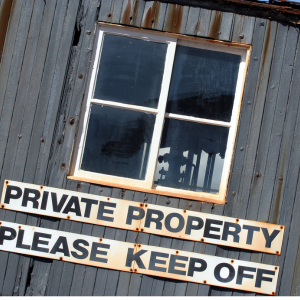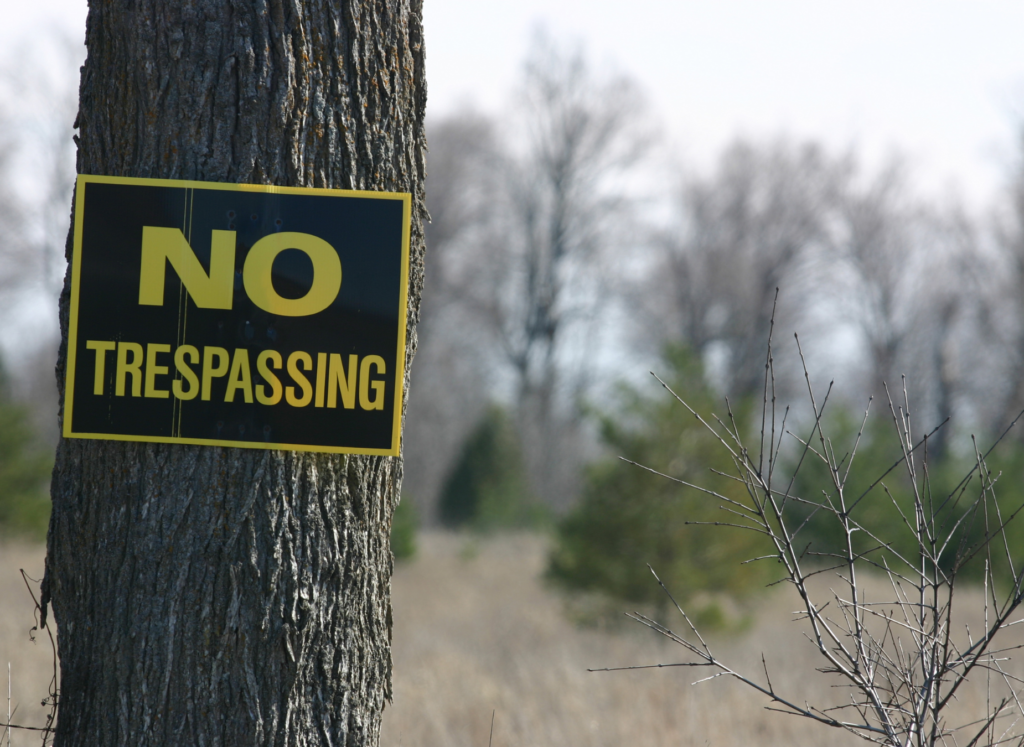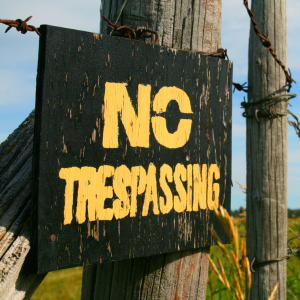
A Comprehensive Guide To Squatter Rights In Texas
While squatters’ rights in Texas can be complicated and often misunderstood, property owners and potential squatters must fully understand the laws that govern these situations.
In Texas, squatters’ rights are called “adverse possession,” they let people who have lived on a piece of land without the owner’s permission claim legal ownership of it after a certain amount of time.
However, several conditions must be met for adverse possession to be granted, including continuous and uninterrupted occupation for at least 10 years, open and notorious use of the land, and proof that the occupant believed they had the legal right to possess the property.
It is important for both property owners and people who want to take advantage of these laws to fully understand their rights and responsibilities under Texas law.
We buy probate properties in all counties and cities in Texas, including Dallas, Arlington, Grand Prairie, Irving, Garland, Plano, Richardson and Frisco.
The Legal Definition Of Squatting And How It Applies In Texas
When you squat on someone else’s land without their permission or legal ownership, you are breaking the law. People who squat in Texas are breaking the law and could be charged with a crime.

But there are times when squatters might be able to claim ownership of the land they’ve been living on. In Texas, this is called “adverse possession,” it must meet certain legal standards before it can be heard.
Some of these requirements are having full and constant control of the property for a certain amount of time, using the property in a public and well-known way, and paying property taxes. Property owners and people who want to squat should know what squatting means legally and how it works in Texas. This is because squatting can greatly impact issues and who owns the land.
Examining The Eviction Process For Squatters In Texas
The rights of squatters in Texas have caused much misunderstanding and debate in real estate. Many property owners are worried about what to do about squatters who live on their land without permission or the legal right to do so.
Chapter 24 of the state’s Property Code explains how to eliminate squatters in Texas. You must give the squatter notice, file an eviction lawsuit, and possibly go to court if the squatter doesn’t leave the land alone.
If landowners want to remove squatters living on their land properly, they must know this process and follow it carefully. Not doing so could lead to court problems and make it take longer to regain property control.
Exploring The History And Evolution Of Squatter Rights In Texas
Squatters’ rights in Texas go back a long way and are not easy to understand. These rights, also called “adverse possession,” go back to the early days of settlement, when the land was very large, and ownership wasn’t always clear.

The idea of squatters’ rights changed over time as settlers claimed land that wasn’t being used and insisted they were the true owners. Many factors, including historical events, cultural influences, and past cases, have shaped the rules in Texas about squatters’ rights.
These rules are still very important in real estate deals and can greatly affect property owners’ rights. It is important for people who buy or sell real estate in Texas to know about the background and development of squatter’s rights.
The Role Of Adverse Possession In Establishing Squatter Rights In Texas
A big part of how squatter’s rights work in Texas is due to adverse ownership. After a certain amount of time, this legal idea allows people who have lived in and taken care of a property without the owner’s permission to become the property owners.
In Texas, squatters can claim adverse possession after 10 years if they can show they have had open, known, and sole land use during that time. If the property is farmland, on the other hand, the time limit is lowered to just five years.
When someone claims adverse ownership, they can only do so if there is no proof that they used force or fraud to take over the property. In Texas, paying property taxes on the land in question can also help a claim for adverse possession.
Common Misconceptions About Squatters And Their Rights In Texas
People who squat on private property in Texas often think they instantly own the land if they stay there for a certain amount of time. No, this is not true. Squatters must meet certain requirements and follow a formal process to claim adverse possession.

Folks who squat have different rights than people who rent, which is another myth. People who squat on someone else’s land are breaking the law and don’t have any legal rights to be there.
Many people also think owners can’t do anything about squatters, but they can go to court to evict them and get their property back. Property owners and people who might want to squat need to know Texas’s rules so there aren’t any misunderstandings or fights.
Protecting Your Property From Potential Squatters: Tips And Strategies
In Texas, squatters’ rights can be hard to understand and are part of real estate law. To keep your property safe from squatters, you should know how these rules work and what you can do to follow them.
One of the best ways to keep squatters away is to check on your property often and remove any signs of illegal living immediately. Another important thing you can do is show proof that you own the land and put up clear “No Trespassing” signs to keep people from moving in.
You can also protect your property from possible squatters by talking to a lawyer and learning about your rights as a property owner. If you are proactive and know what you’re doing, you can protect your real estate property from squatters.
The Impact Of Property Taxes On Squatters Rights In Texas
In Texas, squatters’ rights have been a big deal in real estate, especially regarding property taxes. Local governments in Texas get most of their money from property taxes, which also greatly impact squatters’ rights.

How long a squatter can legally stay on a piece of land before being kicked off depends on how much property tax is paid. If a squatter can also show that they have been paying property taxes on the land for a certain amount of time, they may have a better case for claiming adverse possession and becoming the legal owner of the land.
Real estate owners and people who might want to live in someone else’s land as a squatter in Texas need to know how property taxes affect squatters’ rights.
Addressing Tenant Vs. Squatter Disputes: What You Need To Know
Tenants and squatters cannot fight in Texas without following certain rules and laws.
People may have squatter rights if they live on someone else’s land without permission and that person does not own the property. In Texas, squatters must have lived on the land regularly and openly for at least 10 years before they can make a valid claim.
Landlords and property owners may have a lot of trouble with this because they may have to deal with unwanted tenants taking possession of their property. You can, however, avoid these problems and protect your rights as a property owner by taking certain steps.
Landlords and tenants need to know their rights and duties so there are no arguments about who owns a place.
Resolving Landlord-tenant Issues Involving Illegal Occupancy
Squatters’ rights are often discussed when landlords and tenants argue about people living in someone else’s home without permission. In Texas, people who live on someone else’s land without permission or legal rights are called squatters.

There are many complicated laws regarding squatters’ rights in Texas and nationwide. However, both owners and tenants must follow certain rules. Most of the time, these problems can only be solved through the legal system, like filing an eviction or trespassing claim.
Landlords and tenants need to know their rights and responsibilities in these cases and what might happen if they break the rules. If real estate owners in Texas know everything there is to know about squatters’ rights, they can better protect their homes and avoid needless lawsuits.
How To Legally Remove A Squatter From Your Property In Texas
In Texas, squatters’ rights, called “adverse possession,” can be difficult for property owners. Because each state has rules about squatters, property owners must know their rights and duties when dealing with this issue.
People who live on someone else’s land in Texas can get legal rights to it if they meet certain requirements, like living there without permission for at least ten years. However, there are legal ways for landowners to eliminate squatters living on their land.
This usually means filing a lawsuit and showing proof that the squatter has not met the standards for adverse possession. If you want to get rid of a thief from your Texas property without getting sued or creating other problems, you must follow all the legal steps.
Can You Kick Out A Squatter In Texas?
People have long had mixed feelings about squatters’ rights in Texas, especially regarding how they affect the real estate market. Many people who own land or buildings wonder if they can legally kick squatters off their land or buildings.

It’s not as easy as yes or no because many factors play a role. Laws in Texas allow squatters to be removed legally, but only if certain conditions are met.
Some show proof of ownership and that the squatter has been living on the land illegally. Landlords must also follow strict rules for evicting squatters and give them enough time to leave before they try to do so.
Property owners need to know everything about squatters’ rights in Texas to avoid legal trouble and protect their investments.
How Long Before Someone Is Considered A Squatter In Texas?
The rights of squatters in Texas can be hard to understand, especially for people who work in real estate. But how long does it take for someone to be called a squatter in this state? Texas law says that someone must live on someone else’s land without permission for at least 10 years before claiming squatters’ rights.
People may have some legal rights as squatters if they have lived on a property for more than ten years without having permission from the owner or title to the land. It is important to remember, though, that every case is different, and things like paying taxes and making changes to the property may also affect whether someone is a squatter.
Understanding these details is important for landowners and people wanting to squat when dealing with real estate in Texas.
How Can We Protect Against Squatters In Texas?
In Texas, squatters’ rights can be a big problem for property owners because these people may be able to legally claim ownership of a place if certain conditions are met. Several things can be done to keep renters out.

First and foremost, it’s important to check on empty or unused homes regularly to ensure no one has moved in without permission. Putting up locks and fencing around the land can also prevent people from moving in.
Also, having clear and written proof of who owns the land is important because it can help in court cases if a squatter tries to claim ownership. When protecting your property from thieves and ensuring it is safe, getting legal advice from a real estate lawyer can be very helpful.
What Are Squatters Rights In Texas 2024?
In Texas, squatters’ rights, also called “adverse possession laws,” give someone the legal right to claim ownership of a property after living on it without the owner’s permission for a certain amount of time.
This time is 10 years for residential properties in Texas and 30 years for business properties.
However, squatters must meet strict requirements to claim ownership. For example, they must live on the land publicly and noticeably, pay property taxes, and ensure the rightful owner doesn’t object.
Both property owners and potential buyers in Texas need to know their rights and duties regarding squatters because these laws can significantly affect real estate deals and disputes.
Get Your Fast & Fair Cash Offer For Your Fort Worth Property Today!
Ready to sell your house quickly, without repairs, commissions, or hidden fees? Simply fill out this short form, and we’ll provide a no-obligation cash offer tailored to your home’s value. Fast, easy, and stress-free—selling your home has never been simpler!
Resources To Help You Sell A Property In Texas
Give Us A Call Now (817) 587-8108
If you need to Sell your house fast in Texas, we promise to make you a fair, no-obligation, no-hassle offer. Take it or leave it. You’ve got nothing to lose. Do you still have questions?
Calling us could be the best decision you make all week!
Call Us Now at (817) 587-8108🙂

![companies that buy houses [market_city]](https://image-cdn.carrot.com/uploads/sites/69954/2022/10/Company-That-Buys-Houses-1.jpg)
